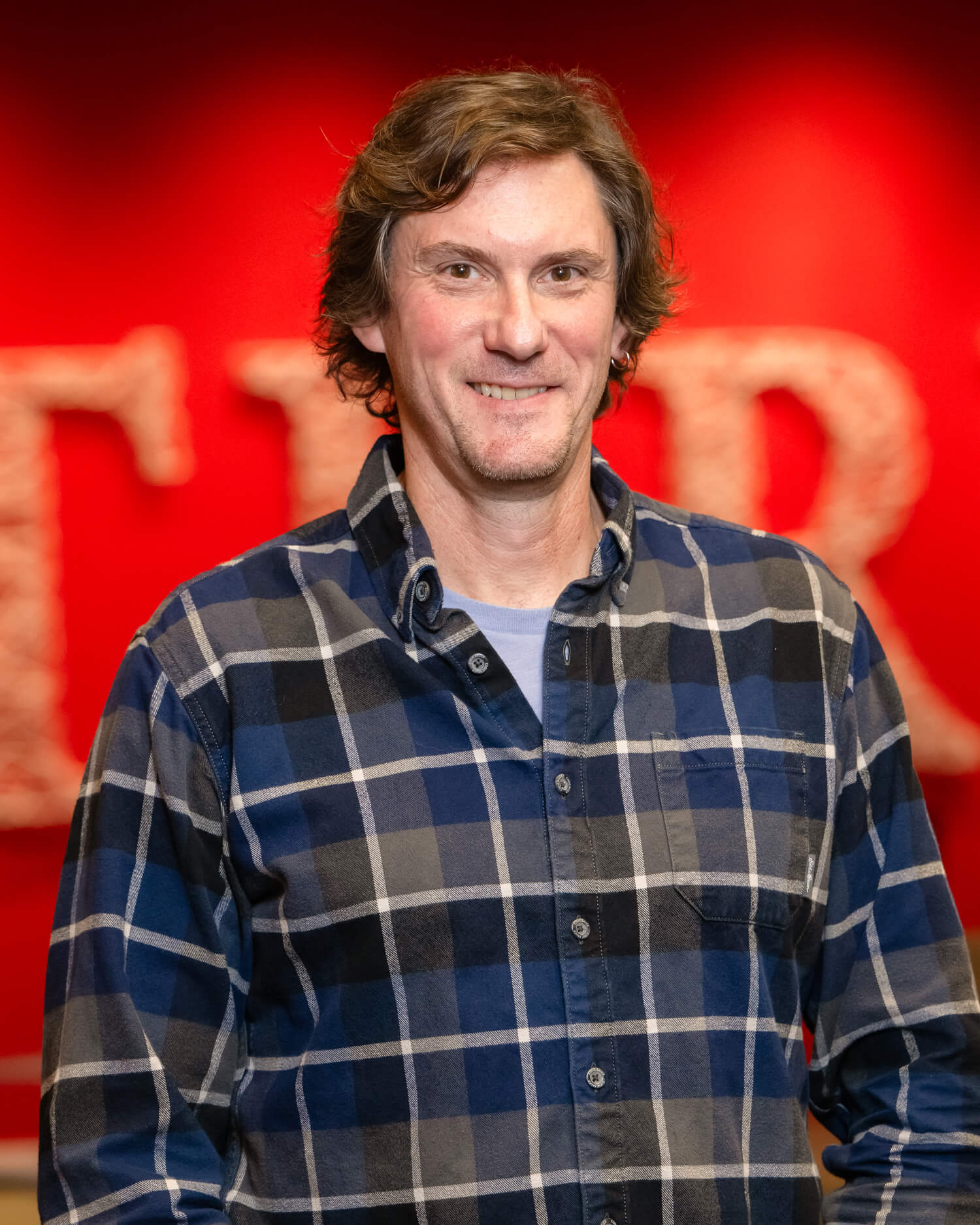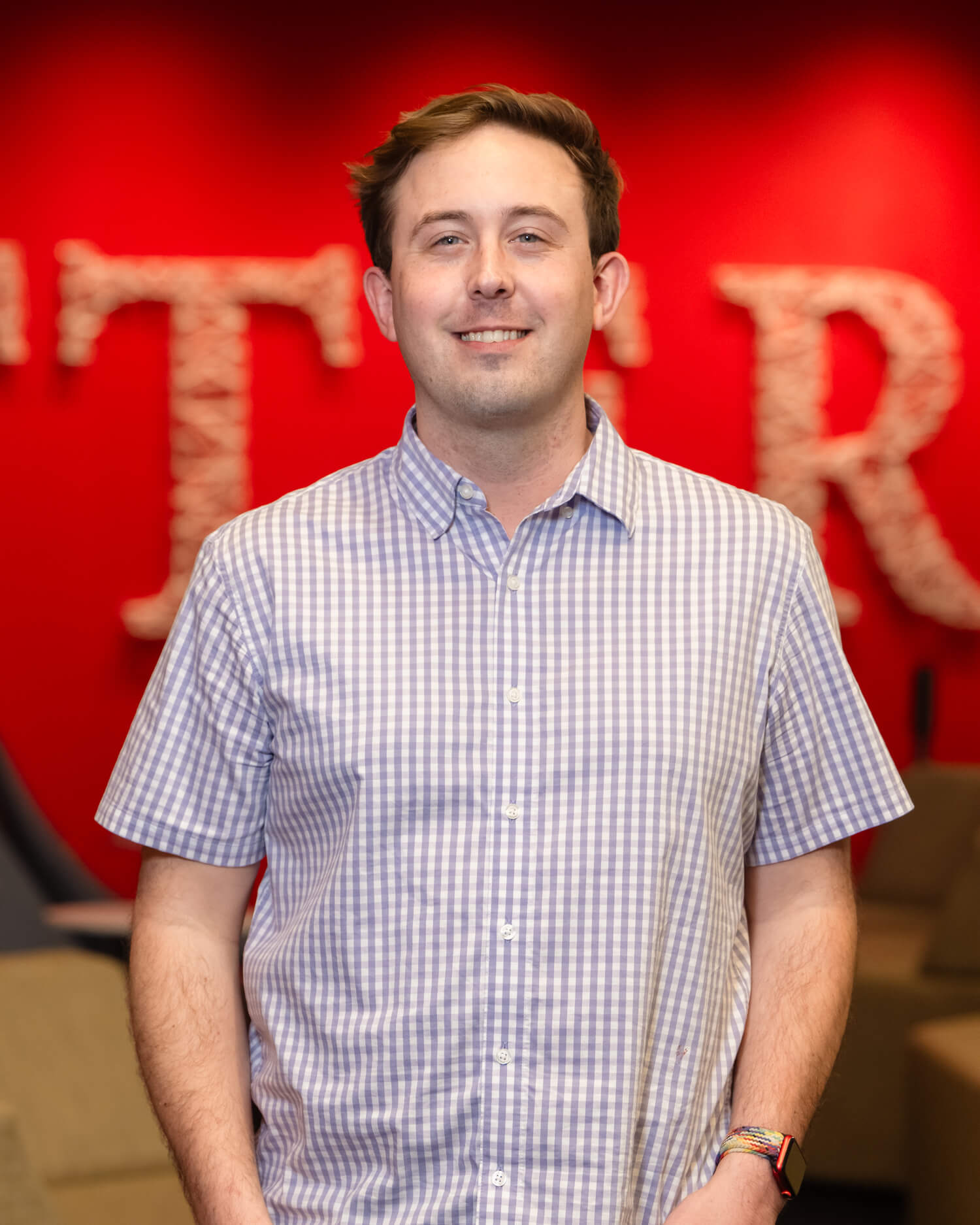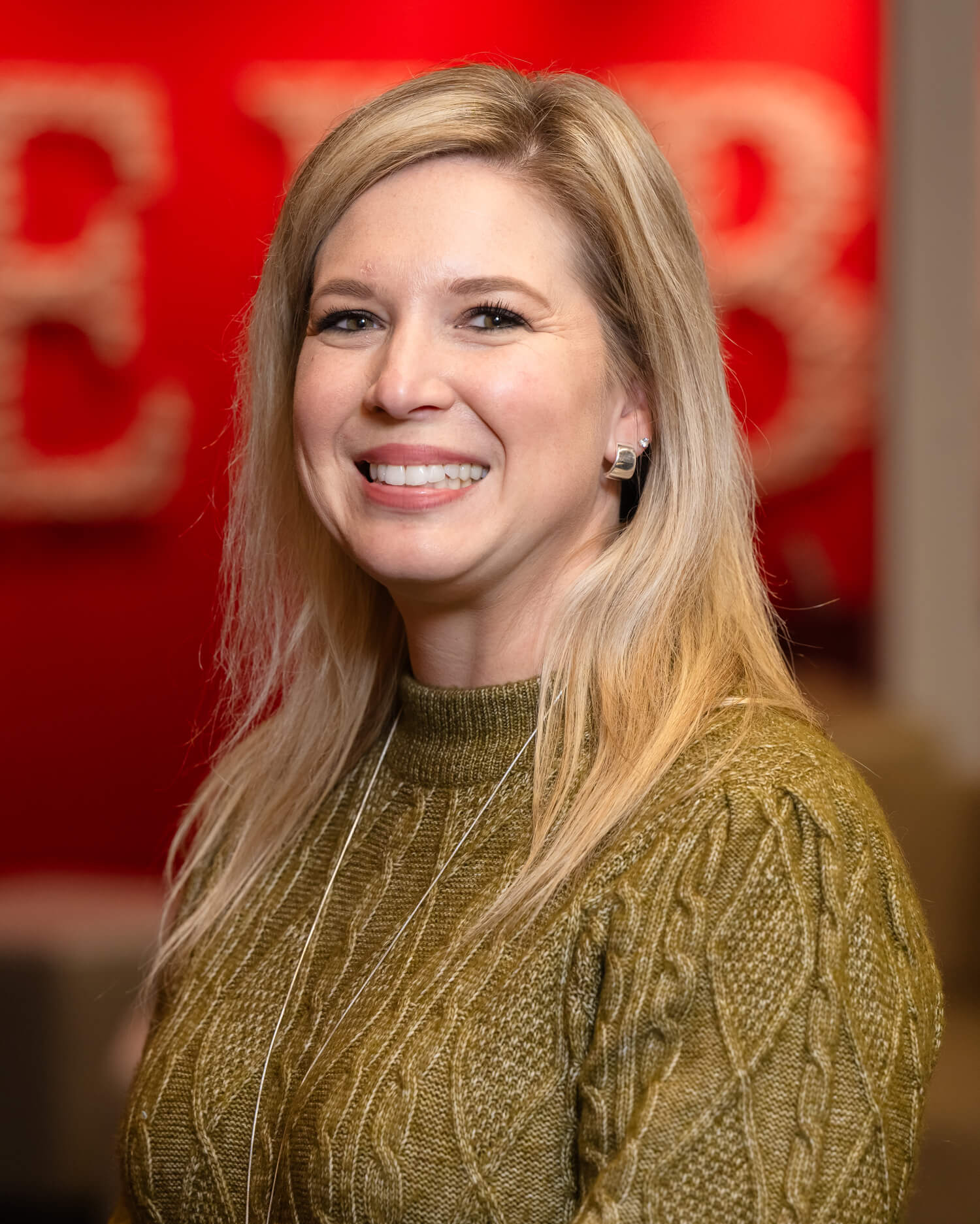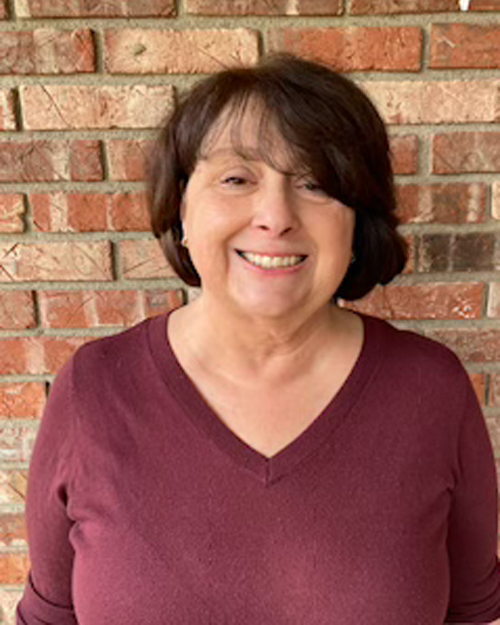TEACHING AWARDS
Each year, Otterbein honors outstanding teachers for their impact on their students, colleagues, and the University. These dynamic and dedicated full- and part-time faculty contribute so much to the Otterbein community both in and outside the classroom. They help students find their calling and grow as young professionals; celebrate their colleagues’ achievements; and show their support for the staff who are often working behind-the-scenes.
Teacher of the Year – David Sheridan


“One thing I want my students to take from my classes is to be inquisitive and always keep learning. I always learn something new every time I teach a course.”
“Sheridan made his animal systems physiology class especially interesting and engaging by using a variety of teaching methods to discuss a normal and diseased state. He described asthma, gave a demonstration, and then had students simulate the experience by providing small straws to breathe through. It was obvious that he held the interest of all students in the classroom.”
– from nomination
How would you describe your teaching style?
Fast paced, energetic, mostly flipped-classroom model. Students do the readings and take a pre-quiz prior to discussing the material in class. It allows us to tackle the difficult subject matter in class with mini-lectures and then follow up applications like a case study.
What inspires you to teach?
Most of my students are going into nursing, medicine, veterinary medicine, physical therapy, dentistry, etc. I remember taking anatomy and physiology and was fascinated by it. I hope I am helping them start their journey into their future careers that are heavily rooted in anatomy and physiology with that same fascination and base knowledge.
What do you hope your students take from your classes?
An appreciation for the body and its processes, be it human or animal, and the fact that we are all similar, but the uniqueness of each person or species is amazing.
Why are you passionate about the subjects you teach?
Anatomy and physiology are at the crossroads of so many disciplines — biology, chemistry, physics — and we can see these structures and functions and processes in our own bodies.
What is your favorite class to teach?
All of them, but mostly whichever one I am currently teaching. I always learn something new every time I teach a course.
What do you think students get from Otterbein faculty that they can’t get anywhere else?
Access.
What is one lesson you want students to carry with them not related to the subject matter?
Be inquisitive and always keep learning.
New Teacher of the Year – Bennett Grooms
“When I teach a course, I view it as an opportunity to connect with future peers and colleagues. My teaching style is very discussion- and application-based. I focus on providing students opportunities to take what they have learned and use that knowledge in real-world scenarios tied to their career interests. I want my class to be a space of mutual learning, where I ask questions and have conversations to guide students into new areas of thought.”
“Dr. Grooms is most likely one of the best things to have happened to the Zoo and Conservation program just because he is so passionate about what he is teaching. His attitude and devotion to animal work is contagious and makes me want to be a better student.”
– from student course evaluation

How would you describe your teaching style?
When I teach a course, I view it as an opportunity to connect with future peers and colleagues who will be joining the field shortly. Under that mindset, my teaching style is very discussion and application based, and I work to go beyond just “learning the material.” Instead, I focus on providing students opportunities to take what they have learned and use that knowledge in real-world scenarios tied to their career interests. Additionally, I prioritize discussion and tying material to previous experiences. I never want a class to be just me talking “to” students, rather, I want my class to be a space of mutual learning, where I ask questions and have conversations to guide students into new areas of thought.
What inspires you to teach?
Mostly it’s the passion and enthusiasm I see from the students. I’m very fortunate to work in a field where there are so many opportunities for students to pursue individual interests. Having a student share about their favorite animal to work with or about their internship experiences is so enjoyable to hear. Similarly, hearing the aspirations these students have for helping wildlife and conservation, and witnessing their immense talent while working in class makes teaching a truly enjoyable experience that I look forward to doing every day.
What do you hope your studentS take from your classes?
One of my primary goals for students who take my classes is help them understand that success is so much more than just a grade or title. I believe success is progressive movement towards a worthy goal, and I try to emphasize to my students how worthy of an endeavor it is for them to think about what they want to do with their lives and trying their best to achieve those goals. If students leave my classes more confident in their knowledge of the world, as well as feeling more confident in themselves, then I consider that a very successful class.
Why are you passionate about the subjects you teach?
I truly love working in conservation, and think it is critical to the health of our planet to connect people to wildlife and nature. I come from a family that is wildlife-oriented and spent much of my time growing up visiting zoos, state parks, and going camping. There is so much diversity in the animals and plants we share this planet with, and I find it fascinating to work with students in understanding how those animals behave, and what we can do to best conserve them. It’s a very rewarding experience to come full circle with my passion for wildlife conservation, and now be on the side of engaging students in this material and work.
What is your favorite class to teach?
My Animal Behavior (BIO3050) course; it’s so much fun between the in-class discusses, lab experiences, and film project that I have students do. I’m constantly thinking of topics and field experiences for the course.
What do you think students get from Otterbein faculty that they can’t get anywhere else?
Compared to other universities, I would say Otterbein students receive an awesome benefit of becoming part of a professional community almost immediately in their program. Considering my department alone, we have students as early as their freshman year working with faculty to take care of aquariums and animals, conduct research, collect field data, and present their own research at conferences. Faculty also see students regularly through organizations, events, and research projects, which makes it feel like we are building connections vs. just pushing students out into the workforce.
What is one lesson you want students to carry with them not related to the subject matter?
That their self-worth goes far beyond their grades or academic performance. I hope students will remember that everyone is worthy of feeling confident in themselves without judgement or comparisons, and that everyone has something worthwhile to share and learn.
Excellence in Part-Time Teaching – Amy Karns


“Teaching is more than the simple transfer of knowledge from one individual or group to the next. As a classroom leader, it’s my job to create a learning environment in which students belong — feeling valued and respected. A sense of classroom community is crucial to form a safe learning environment where students may consider other perspectives with growth, empathy, and kindness.”
“I would advise any student, psychology or not, to take this course because it really solidified my understanding of the topic of development, and it was a very fun and interactive course!”
– from student course evaluation
How would you describe your teaching style?
My teaching style is student-focused and highly interactive. I believe learning happens through various methods, including lecture, discussion, problem-solving, and real-life situational labs. I strive to engage the class while giving many opportunities to learn from one another.
What inspires you to teach?
I am motivated by the shared experiences in the classroom integrating course content to real-life application. I enjoy helping students problem-solve, think critically, and challenge their own perspectives while encouraging them to try something new or step out of their comfort zone. I hope my love and excitement for the field of psychology encourages personal growth and lifelong learning as it relates to their personal career goals.
What do you hope your students take from your classes?
I hope that students leave my class feeling accomplished in their knowledge of how human behavior and mental processes affect their lives each day. I hope they look back and remember how fun the process of learning can be even if it requires them to think past the traditional way of college teaching.
Why are you passionate about the subjects you teach?
There is a common myth that psychology only encompasses the diagnosis and treatment of mental health disorders. I love teaching how human behavior and mental processes are relevant in day-to-day interactions through relationships, motivation, emotion, attention, and our abilities (intelligence).
What is your favorite class to teach?
This is tough as I enjoy different classes for various reasons. My favorite is probably introduction to psychology for many of the reasons listed above. I get excited to debunk many of the myths associated with the field of psychology — especially with students who take psychology to check off a requirement.
What do you think students get from Otterbein faculty that they can’t get anywhere else?
We care about the whole student. Otterbein is a family. Faculty and employees care about each other and the well-being of students.
What is one lesson you want students to carry with them not related to the subject matter?
You do not have to be perfect to be successful.
Exemplary Teaching Award, United Methodist Church General Board of Higher Education – Cynthia Laurie-Rose
“I’m inspired by seeing the satisfaction on students’ faces when they have worked through a complex set of ideas, and they suddenly show understanding. I can see the students gain confidence in that moment and I know that they will begin to trust their ability to understand concepts or complete tasks that they may have previously felt were too difficult.”
“It is staggering how dedicated she is to this high-impact practice of experiential learning. She does this work because research is essential for our students who wish to pursue graduate study, and Cindy wants to support them in that endeavor.”
– from nomination

How would you describe your teaching style?
My teaching style is a hybrid of the traditional classroom lecture with a healthy mix of activities that illustrate the concepts I am teaching. When appropriate, I include independent research activities within the class. In an Honors course I teach, I ask students to conduct independent research using archival data; in my last seminar course on working dogs, the class conducted a study with college-aged participants and therapy dogs from Pet Partners.
What inspires you to teach?
I’m inspired by seeing the satisfaction on students’ faces when they have worked through a complex set of ideas, and they suddenly show understanding. I can see the students gain confidence in that moment and I know that they will begin to trust their ability to understand concepts or complete tasks that they may have previously felt were too difficult.
What do you hope your students take from your classes?
The excitement and fun of learning.
Why are you passionate about the subjects you teach?
I teach courses in experimental psychology. I enjoy showing students that research methods and core experimental courses such as physiological psychology and perception have relevance outside the classroom. As an example, I teach a unit on dyslexia in my physiological course, exploring its basic neurological underpinnings. I then introduce students to the surprising controversy of using dyslexia as a diagnosis in public schools. Owing to the tireless effort of grassroot parent organizations lobbying states to recognize the science, we end this unit discussing the new “dyslexia laws” requiring schools to use dyslexia as a specific diagnosis.
What is your favorite class to teach?
I love to teach perception. Perception is a topic students know very little about coming into the class. It is interesting that humans do not routinely reflect on how or why we see or hear the world the way we do. I enjoy introducing topics that are brand new to them and help them make connections between what they see and hear and the science behind those experiences. Students enjoy the many fun demonstrations in this class, including optical illusions.
What do you think students get from Otterbein faculty that they can’t get anywhere else?
Owing to our small classes, a community often emerges from our close work together. That sense of community persists long after the semester is over. We will see many of these students in other classes we teach, and some will work alongside us in our labs. We build long-lasting relationships with our students well beyond graduation. We continue to serve as mentors to our students and continue to help them in their professional endeavors.
What is one lesson you want students to carry with them not related to the subject matter?
In my classes, I emphasize the relationship between science and authority — whether that authority is religious, political, or societal. I want students to understand that science can be trusted and that they must become informed consumers of science and engaged citizens.
